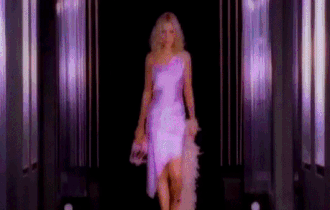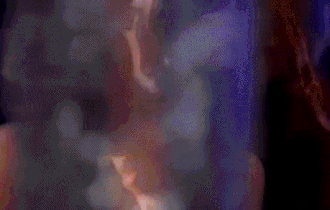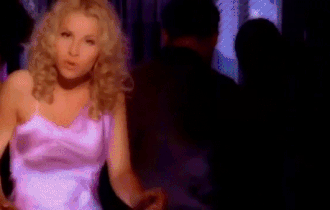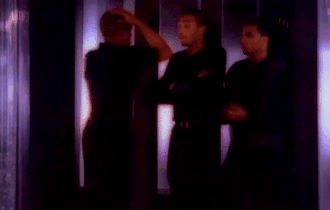Released: 22nd March 1999
Writers: Mark Topham / Karl Twigg / Lance Ellington
Peak position: #42
Chart run: 42
Never let it be said that record labels in the late ‘90s didn’t take risks. Despite garnering a reputation for carefully calculated attempts to dominate the charts, they were still capable of a left-field decision or two. Sweet Lies is one such example and, even to this day, defies any logical explanation.

Launched in 1999 as Pete Waterman’s latest protégé, Tina Campbell’s future looked so bright. Her back-story was a classic tale of rags-to-riches; she was discovered while cleaning toilets (the minutiae of this detail was vital, for some reason), given a new identity (Pete Waterman was already working with Tina Cousins at the time) and landed a record deal after singing just three lines. The timing was not entirely fortuitous; with Billie Piper’s debut album campaign winding up, there was a potential gap in the market for a young female singer to swoop in. You can’t fault Pete Waterman’s logic – it hadn’t seen him far wrong in the late ‘90s, after all – but picking Sweet Lies as Ellie Campbell’s debut single feels like a decision made with the heart and not the head.

The track is very reminiscent of Pete Waterman’s early work with Steps. In-between the (mostly) uptempo tracks they released as singles, the Step One album was peppered with ballads and mid-tempos, which were toe-tappingly inoffensive, but mostly off-brand. It appeared, therefore, that the intention was for such material to be pushed in Ellie Campbell’s direction instead. That’s precisely what this is, and it’s perfectly charming. Seriously, Sweet Lies is a lovely little pop song. The sort that you’d happen across tucked towards the back end of an album and fantasise – just for a moment – what might happen if someone dared release it in a parallel universe where commercial success was unimportant. But this actually happened, which is barely fathomable in itself, let alone the fact that it came from an artist on the same record label as Britney Spears mere months after …Baby One More Time.

Let’s just set aside that disbelief for a moment, though, because as a song in its own right, there is a lot to appreciate about Sweet Lies. Thematically, it’s very much in keeping with the ethos of the time, which was that if there’s a problem in a relationship, then bury your head in the sand and hope it’ll go away: “‘Cos I don’t wanna believe, that my intuition’s right; say you’ll stay and save my life, say the love in your heart will keep burning bright”. And there was little reason to doubt that this was entirely the right approach because the message is reinforced in such an innocuously catchy manner (in hindsight, this explains an awful lot, doesn’t it?). Similarly, the chorus: “No don’t stop telling me sweet sweet lies, or you know my heart’s gonna break, I guess it’s why they say that love is blind, so keep on telling sweet lies” is a total earworm that will stick in your head long after the song has finished. Buoyed by gentle ad-libs (“Baby PLEASE keep telling sweet lies”), maybe – just maybe – it’s possible to see how this might have worked as a third or fourth single, released purely to pick up some commercial radio airplay and keep album sales ticking over.

It’s not entirely clear what it was about Ellie Campbell’s voice that blew Pete Waterman away after three lines (then again, this is the man reduced to tears by Rosie Ribbons during Pop Idol, so who knows). Still, Sweet Lies certainly demonstrates that there is something immediately likeable here. The warmth to her tone has an earnest, wide-eyed naivety to it; the song is delivered with such sincerity that you can’t help but feel bad about the miserable treatment she’s experiencing from her beau. There’s never a sense that Ellie Campbell is simply going through the motions, and what’s more, it was refreshing to hear her vocals be permitted to reach their natural limits. The way her voice cracks during the middle-eight: “Then it’s a small sacrifi-i-ice” still stands out as being at odds with the tendency at the time for such ‘flaws’ to be papered over with auto-tune.

Having established the type of track that Sweet Lies is, there’s little surprise that the accompanying music video is consistent with the overall theme. It features Ellie Campbell as a lounge singer of sorts, performing in a venue that looks like the end-product of a 1999 Changing Rooms makeover. The venue is decked out in bubble glass pillars and dressed with a soft pink-purple colour palette; it’s easy on the eyes with lots of distorted shots through the glass as the camera moves around the room. Even with the addition of a very loose telling of the narrative featuring some extras in the video, fundamentally, there’s just not very much happening. Jive Records were exceptionally good at landing music videos which established very clearly who their acts were and what they were about; however, this is not a great example. Ellie Campbell comes across as very nice…and that’s about it.

Although Sweet Lies got heavy rotation on The Box, it failed to catch much attention beyond that and subsequently peaked at #42 in the UK. It would be fair to say that, pleasant as the song is – and it really is lovely – it always ran the risk of being a bit too undemanding as a debut single for Ellie Campbell. There’s no doubt it was a victim of circumstance, but only to a certain extent; it’s hard to imagine a point where Sweet Lies would ever have done much more than scrape into the top 40. Yet, all that being said, this is what made the late ‘90s such a ride; record labels were throwing anything and everything at the wall to see what would stick. Occasionally those decisions – much like this one – defied common sense, and for that, we should be extremely grateful.

There are no two ways about it; Sweet Lies was very much a commercial disaster. But Pete Waterman is nothing if not stubborn and certainly wasn’t ready to throw in the towel just yet. If there’s one upshot here, it’s that Jive Records had somewhere to go next with Ellie Campbell. It’s entirely possible to like the song – as we do – while recognising that it didn’t fit with what was likely to sell. The label would eventually find themselves backed into a corner, but in the meantime, unlikely as it might have seemed in the immediate aftermath of Sweet Lies, further singles – and a debut album – beckoned as Ellie Campbell sought to find her place in the charts.



